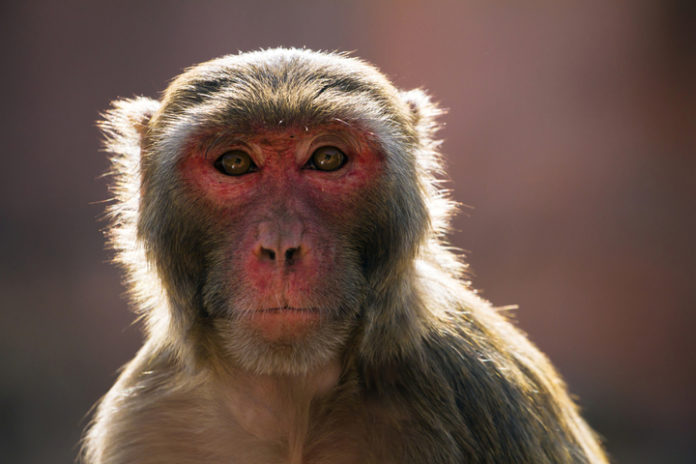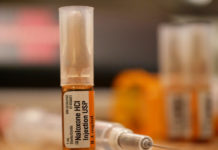Scientists have broken new ground with a vaccine that stops the high of heroin. The experts from the Virginia Commonwealth University and the Scripps Research Center discovered that the vaccine — the first of its kind to reach this phase of preclinical testing — was effective on rhesus macaques, a species of monkeys.
“Essentially we have discovered a universal drug vaccine platform that can be customized to target virtually any drug or a predetermined combination of drugs,” said first author Paul Bremer of the Scripps Research Institute. “Emerging research has shown that single drug vaccines can be combined with other single drug vaccines without loss of efficacy.”
Looking to develop more pharmacotherapy options for disorders related to opioid use, the scientists created the vaccine through an assessment of hapten structure — molecules that evoke an immune response through protein — and carrier proteins, which help in the migration of substances.
“We paid careful attention to the chemical structure of heroin and used an accurate mimic of it in the vaccine, known as a hapten,” he said. “This hapten provides a blueprint for which molecule the antibodies should recognize. Previous clinical trials have not used vaccines in which the hapten is properly designed to mimic the target drug.”
The scientists found that the anti-heroin vaccine demonstrated durability and effectiveness over eight months. It also sustained and generated anti-drug IgG titers, a calculation of how much antibody an organism has yielded.
“Theoretically, a heroin user immunized with our vaccine would face increased difficulty in getting high, which may help in achieving drug abstinence,” Bremer said. “Because of the high selectivity of the vaccine for heroin, drugs like buprenorphine could be used as an adjunct pharmacotherapy to help with cravings.”
Bremer explained that the anti-heroin vaccine, which is an immunotherapy, is different from buprenorphine or naltrexone, which are pharmacological therapies.
“[The vaccine] generates antibodies that neutralize heroin’s psychoactive metabolite (6-acetylmorphine) and prevents it from acting on the (opioid) receptors in the brain,” he said. “Pharmacotherapies, in contrast, also act on the same receptors as heroin and can, therefore, have side-effects. Antibodies from the vaccine are much longer lasting and do not penetrate the brain, so they are much safer.”
Rhesus monkeys are ideal subject models because… (continue reading)
















